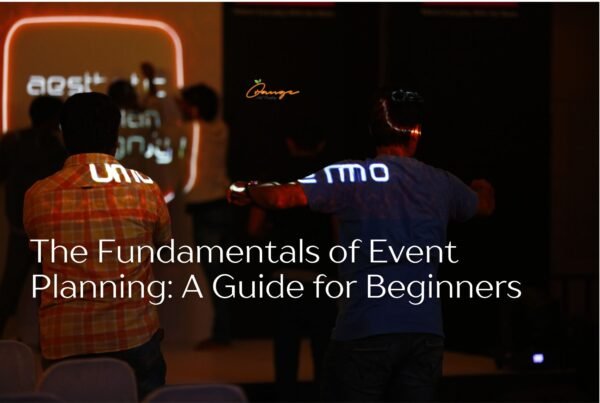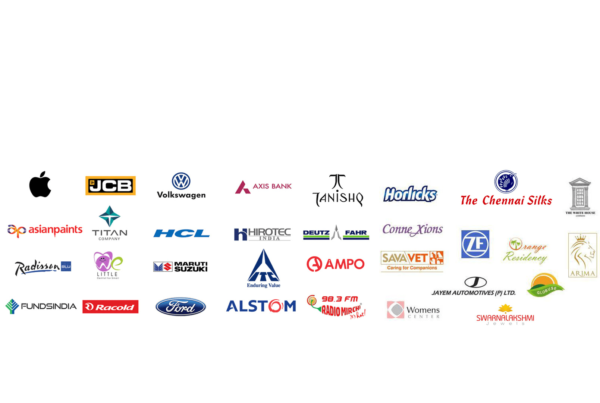Whether you’re planning a company holiday party or organising a large-scale conference, corporate events are a critical aspect of business success. But with so many different types of events to choose from, it can be overwhelming to decide which one is right for your organisation’s needs. That’s why we’ve put together this guide – Corporate Events 101 – to help you understand the various options available and make informed decisions about your next big event. So grab a notebook and get ready to take some notes because we’re diving into everything you need to know about corporate events!
What is a Corporate Event?
A corporate event is a gathering organised by a company for its employees, business partners, or customers. It can be used for networking, marketing, or simply as a way to show appreciation for your employees or clients. There are many different types of corporate events, and the type you choose will depend on your goals for the event.
Some common types of corporate events include:
Conferences: A conference is typically a large gathering of people who share a common interest. They may be held to discuss industry news, learn from experts in the field, or network with other professionals.
Seminars: A seminar is similar to a conference, but it is usually smaller in scale and focuses on teaching attendees about a specific topic. Seminars are often led by experts in the field and offer attendees the chance to ask questions and get personalised advice.
Team-building events: These events are designed to help employees work better together as a team. They may include activities like trust exercises, problem-solving tasks, or group games.
Product launches: If your company has developed a new product, you may host an event to unveil it to the public. This type of event can generate media attention and excitement about your product among potential customers.
Customer appreciation events: Hosting an event specifically for your best customers is a great way to show them how much you appreciate their business. These events can be small gatherings or large parties, depending on your budget and what
Types of Corporate Events
When it comes to corporate events, there are generally three different types: conferences, conventions, and expositions. Each type of event has its own unique purpose and set of features.
Conferences are typically smaller events that are focused on a specific topic or industry. They usually involve a series of educational sessions and networking opportunities.
Conventions are larger events that bring together people from all different aspects of a particular industry. They often include exhibits, workshops, and keynote speakers.
Expositions are the largest type of corporate event, and they typically showcase products or services from a variety of businesses. Expositions often have many different attractions and activities for attendees to enjoy.
– Internal Events
Internal events are events that are organised and hosted by a company for their employees. These events can be anything from team-building exercises to holiday parties and everything in between. The purpose of these events is to boost morale, promote teamwork, and show appreciation for employees.
Some examples of internal corporate events include:
– Company picnics
– Employee recognition ceremonies
– Holiday parties
– Team-building exercises
– External Events
When it comes to corporate events, there are generally three different types: internal events, external events, and hybrid events. Internal events are those that are organised and hosted by the company itself, while external events are those that are organised and hosted by an outside party. Hybrid events are a mix of the two, with both the company and an outside party working together to create the event.
External events can be further divided into two different categories: public events and private events. Public events are open to anyone who wishes to attend, while private events are invite-only and typically only for employees or clients of the company.
There are a few benefits to hosting an external event. First, it shows that the company is willing to invest in its relationships with other businesses. Second, it provides an opportunity for networking and building new relationships. And third, it can be a great way to generate publicity for the company.
However, there are also some challenges that come along with hosting an external event. First, it can be difficult to control the message when you’re not in charge of the event. Second, you may not have as much control over the logistics as you would if you were hosting the event yourself. And third, you’ll need to be sure to pick a reputable partner to work with – otherwise, your event could end up being a flop.
– Social Events
When it comes to corporate events, there are a few different types that are worth mentioning. Social events are designed to be more low-key and relaxed, allowing employees and clients to mingle in a more casual setting. These types of events usually take place after work hours or on the weekends, and can include things like cocktail parties, holiday parties, or company picnics.
Benefits of Hosting Corporate Events
When it comes to corporate events, there are a variety of benefits that can be gained by hosting them. For one, corporate events can help to build and strengthen relationships between employees, clients, and business partners. Additionally, they can be used as a marketing tool to promote your company or product, and to generate new leads. Finally, corporate events can also be a great way to boost employee morale and show appreciation for their hard work.
Planning and Managing Corporate Events
When it comes to corporate events, there is no one size fits all solution. The type of event you plan will be based on the specific goals and objectives of your company. However, there are some common elements that should be considered when planning any corporate event.
The first step is to determine the purpose of the event. What are you trying to achieve? Are you looking to increase brand awareness, generate leads, or build relationships with clients? Once you know the purpose, you can start to develop a plan that will help you achieve your goals.
Next, you need to decide who will be attending the event. This will help you determine the scale and scope of the event. Will it be a small gathering of employees or a large trade show with hundreds of attendees? Knowing your audience will also help you choose the right location and date for the event.
Now it’s time to start thinking about the logistics of the event. How will people get there? What type of food and drink will be served? What kind of entertainment will be provided? All of these details need to be carefully planned in advance so that everything runs smoothly on the day of the event.
Finally, don’t forget to promote your event! Make sure everyone in your target audience knows about it and has all the information they need to attend. Use social media, email marketing, and traditional advertising methods to get the word out.
Catering for Corporate Events
When it comes to corporate events, catering is an important aspect to consider. There are a few different types of catering that can be provided for these types of events, and it’s important to understand the difference between them so that you can choose the right option for your event.
The first type of catering is called drop-off catering. This is where the caterer will deliver the food to the event location and set it up, but they will not stay to serve it. This is a good option if you have a small event or if you’re on a budget.
The second type of catering is called buffet catering. This is where the caterer will set up a buffet at the event so that guests can help themselves to the food. This is a good option for larger events or if you want your guests to have more choice in what they eat.
The third type of catering is called sit-down catering. This is where the caterer will serve the food to guests at their tables. This is a good option for more formal events or if you want your guests to be waited on hand and foot.
No matter what type of event you’re planning, there’s a type of catering that will suit it. So, make sure you take the time to understand all of your options before making a decision.
Making the Most of Your Corporate Event Budget
When it comes to corporate events, there are a lot of different factors to consider. But one of the most important things to think about is your budget. You want to make sure that you’re getting the most bang for your buck, so to speak. Here are a few tips on how to make the most of your corporate event budget:
1. Shop around for venues. Don’t just book the first place you find. Take some time to compare prices and services offered by different venues.
2. Consider all aspects of the event, not just food and drink. Make sure you factor in things like entertainment, decorations, and transportation when creating your budget.
3. Be flexible with your dates and times. If you’re willing to be flexible with when your event is held, you may be able to get a better deal on the venue or other costs associated with the event.
4. Know what’s included in the price of vendor services. When comparing costs, be sure to ask what’s included in their services (e.g., setup, cleanup, etc.). This will help you get a more accurate comparison of prices.
5. Ask for discounts or package deals. Many vendors are willing to offer discounts if they know they’re competing for your business. So don’t be afraid to ask!
Creative Ideas for Corporate Event Themes
When planning a corporate event, it is important to choose a theme that will appeal to your target audience and reflect the image of your company. Here are some creative ideas for corporate event themes:
-A sports theme is always popular and can be easily incorporated into many different types of events. For example, you could host a golf tournament, basketball tournament, or even a tailgating party before a big game.
-If you want to promote healthy living and wellness, consider hosting an event with fitness activities or health seminars. You could also offer healthy food options at your event.
-For a fun and festive atmosphere, consider hosting a carnival-themed corporate event. This could include games, rides, food booths, and more.
-For a more sophisticated atmosphere, consider hosting an elegant dinner party or ballroom dance. This would be perfect for showcasing your company’s products or services.
-If you want to support a cause or raise awareness for an issue, consider hosting a charity auction or gala. This type of event can be very successful in terms of both publicity and fundraising.
To include Stall fabrication also come’s under corporate events and branding.
Conclusion
Corporate events offer a great way to generate excitement and build relationships with employees, clients, customers, or any other stakeholders. With this guide as your starting point, you should now have a better understanding of the different types of corporate events available and how they can help meet your goals. Whether you want to host an offsite retreat for team bonding or launch a new product in front of an audience full of potential buyers – there’s always something that suits both your budget and needs![/vc_column_text][/vc_column][/vc_row]







